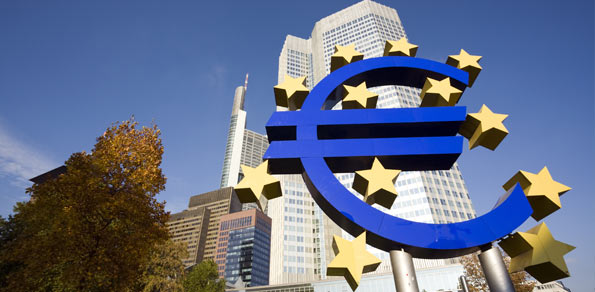On Thursday, the ECB (European Central Bank) kept rates unchanged and agreed to increase the Pandemic Emergency Purchase Programme by an extra €500 billion to €1.85 trillion and extend it to the end of March 2022 to maintain liquidity and shore up the pandemic ravaged economy. The euro rose on the news while Germany’s DAX 30 and France’s CAC 40 fell by -0.54% and -0.19%.
At 7 pm UK time on Thursday, EUR/USD traded up 0.38% at 1.2124, trading close to R1 and near to highs not seen since May 2018. The euro also advanced versus the UK pound as it became apparent that the last gasp dash by Boris Johnson to Brussels on Wednesday evening to avoid a no-deal divorce was a waste of time.
Completely outmanoeuvred by the EU, the UK’s PM was still mumbling about “fish, sovereignty, and patriotism” to technocrats in the EU who have the interests of 27 other nations to look after.
Already scheduled to leave the Customs Union and the single market, the UK still arrogantly expects to enjoy tariff-free trade without agreeing to a level playing field. It just won’t happen; the best UK residents can hope for is the EU offering an extension that the UK government can sell as a win to its gullible supporters.
The leaders of the various EU members will continue their council meeting on Friday, without the UK in attendance. Commentators expect the council to report on any Brexit development, but the subject isn’t top of the agenda, and any decision might have to wait until Sunday.
But the onus is on the UK to make decisions, as far as the remaining EU members are concerned, the UK leaves on January 1st, the transition period will expire then, so it’s up to the UK to get its house in order.
The economic impact of the pandemic has hit the UK harder than any other European nation. Analysts were expecting GDP to show a rise of 1% for October when the ONS published the data on Thursday morning. However, growth came in at 0.4%, and this is before the most recent lockdown began in November. Analysts quickly revised their projections and now expect the collapse in UK GDP (for the year) to be close to -9%
While many analysts and market commentators fixate over GBP/USD attaching its value to the Brexit impact, they’ve failed to notice how GBP has crashed versus its other peers during 2020. They’ve also ignored the fact that the performance of GBP/USD needs measuring in the context of USD diving throughout the year. USD/CHF was down -0.25% on the day and -8.61% in 2020, USD/JPY is down -3.99% YTD, USD/CNY is down -6.83% YTD, and AUD has risen by 7.83% versus USD.
At 7:30 pm UK time, EUR/GBP traded at 0.9129, up 0.99% on the day and close to R2. The euro is up 7.43% versus sterling year-to-date. Sterling slumped versus other peers during the day’s sessions, GBP/USD traded at 1.328, down -0.54%, and down -1.29% weekly. GBP/AUD traded down -1.83% on the day and is down -6.31% during 2020, GBP/CHF traded down -0.77% and is down -7.68% year-to-date.
The recent recovery gold experienced appears to have flatlined during recent sessions, the precious metal which often acts as a haven had developed a strong trend when observed on a 4hr chart, climbing steadily during December to breach 1870. A proportion of the gains have evaporated over recent sessions, and on Thursday XAU/USD traded at 1835 down -0.22%.
In other market news, US equity markets traded in narrow ranges and fell moderately as market investors and traders wait for fresh stimulus news. At 8:30 pm UK time the SPX 500 was flat, DJIA 30 down -0.10% and the NASDAQ 100 up 0.51%. US inflation has picked up, coming in at 1.2% annually for November, while the deficit for November came in at $145b, better than the forecasts and a marked improvement from the $209b posted this time last year.
The mood became soured by the latest USA weekly unemployment claims coming in at 853K, way above the 716K in the previous week and above predictions of 745K. Such a disappointing reading causes analysts to doubt if seasonal hiring will save the jobs market. And with the USA posting record-breaking deaths and cases from Covid over recent days, you must wonder just how long US equity markets can trade at such stratospheric levels.


